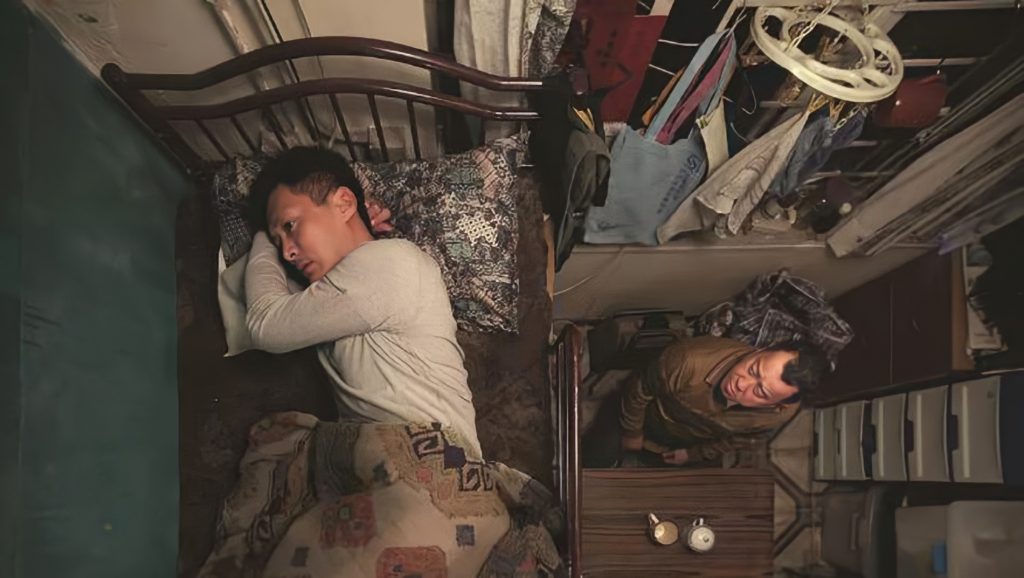People with bipolar disorder are often misdiagnosed and wrongly treated compared to people with other mental illnesses in China. Why is it so difficult to treat this mental disorder?
Eva lay motionless on the bed, her body uncontrolled, her heart beating so violently as if someone had grabbed her by the heart so tightly that almost killed her. Overwhelmed by immense panic, she felt as if the ghosts of a million nightmares were lunging at her, keeping her awake yet struggling.
Eva Zhang, 34, from Hubei Province, realized that she had returned to the most serious symptom of bipolar disorder, also known as manic-depressive illness, a psychiatric disorder that causes a high frequency of extreme mood swings, including manic symptoms of extreme highs and depressive symptoms of extreme lows.
“It’s like you’re on a 90-degree roller coaster going up and down at an infinite speed throughout the day,” she says. “I feel like my heart is jumping out. The pain level and extreme emotional repetition can push me to a physical and mental limit.”

Thereafter, Eva had been tormented by this alternating cycle of mania and depression numerous times a day, feeling mentally impaired and almost incapable of working. When she went to the hospital for a follow-up appointment, the doctor found that the root cause was the wrong medication she had been taking and told her to stop anti-depressant medication during the mixed episode, which otherwise made her symptoms worse.
“Her words suddenly enlightened me,” says Eva. “It was only then that I realized I had been medicated wrongly for such a long time.” Just a week after she stopped taking antidepressant drugs, she no longer felt panic. The pain was easing, and things were looking up.
It is not uncommon in China for people with bipolar disorder, like Eva, to be misdiagnosed and treated with the wrong medication. According to a domestic survey, the total misdiagnosis and missed diagnosis rates are as high as 92.4 percent. The average period from onset to diagnosis is eight to ten years, and the longest is 22 years. Most of them are further subjected to long-term wrong medication followed by misdiagnosis.

Many bipolar patients are initially misdiagnosed as other mental illnesses and are prescribed medication in terms of that wrong diagnosis for a long time, according to Andrea Wu, the manager of Bipolar World, China’s first organization focusing on and speaking for bipolar disorder.
“For example, some bipolar patients are initially diagnosed as depression, even if their symptoms are caused by mania but go undetected,” she says. “They may mistakenly take antidepressants for couples of years before their bipolar disorder is detected.”
The negative impact of incorrect diagnosis and treatment on bipolar patients is evident. Yin Lishu, 25, from China’s eastern city of Weihai, was first diagnosed as depression and anxiety in 2017 while her occasional mild manic symptoms had been overlooked by doctors.
Not receiving any anti-manic medication, she was often very irritable and acted out in many aggressive ways. She recalls playing board games with her roommate on the eve of her graduation from university, when she suddenly became furious and went for her roommate’s neck who just made a wrong remark, nearly causing injury.
“Such a case happened a lot during those two years. It took a toll on my interpersonal relationships and was an emotional overreaction that I had no control over,” she says.
It was until May 2019, when Yin arrived at neighboring city Qingdao’s mental health center, where she reported her manic symptom to the doctor that her condition gradually improved with medication adjustments.
Apart from misdiagnosis and wrong medication, some Chinese psychologists believe that even treating bipolar patients based on the right diagnosis is much more difficult than other mental illnesses.
The duration of treatment for bipolar disorder is always quite long and their symptms are constanly changing, so the drug dose may not be timely adjusted according to the patient’s condition, according to Peng Daihui, a psychiatrist from Shanghai Mental Health Center.
“If you’re depressed and I give you an antidepressant. If it brings about anxiety, I add an anti-anxiety medication for you. If you’re also experiencing psychotic symptoms, you might need another mood stabilizer,” says Peng with 20 years of experience in treating bipolar disorder. He adds that medication for this mental illness can be technically difficult work that not many psychiatrists can do well in the country.
There’s no doubt that China has made efforts to improve the situation of people with mental illness. The Chinese government recently made promoting the nation’s mental health a key goal in its “Healthy China 2030” strategy and strengthened policies on mental illness, whereas there is still a lack of separate policies for specific mental illnesses in China, including bipolar disorder.
Chinese psychiatric experts generally believe that medical research into bipolar disorder and its treatment has yet to be improved much in the country. The introduction of Therapeutic Drug Monitoring(TDM), characterized by its individual treatment, can be seen as a breakthrough in fighting against bipolar disorder, according to Li Wenbiao, an expert in therapeutic drug monitoring studies and neuropsychiatry.

“It is essential to implement individualized treatment for patients with bipolar disorder.” Li said at a seminar on March 30th this year, the Bipolar Disorder Day, “It helps doctors to observe how well the medication is working, which helps individualize the dose of medication and improve the efficiency of medication.”
However, this treatment has not yet been popularized in the country and is still mainly confined to the provincial mental health center level. “The high price of such equipment, the reliance on imports, and the high professional requirements have to some extent limited the large-scale application of this technology in the medical field,” said Zhao Beibei, director of Guangzhou Jinyu Mass Spectrometry Clinical Testing Center.
Some long-standing unsolved problems in the Chinese medical system, likewise, worsen the situation. For example, short consultation times make it more difficult for bipolar disorder patients to be correctly diagnosed.
Each patient can only be seen for about 10 minutes, which is simply not enough for the doctor to diagnose bipolar disorder with its complex symptoms, according to Eva, whose rapid cycling bipolar disorder initially went undetected. The doctor could only prescribe antidepressants based on her symptoms of depression while ignoring her mixed condition. “There is so little time given to doctors because there are simply too many patients,” she explains.

There is also a lack of primary care services and an imbalance in the distribution of medical resources in China, which prevents many bipolar patients living in second and third-tier cities from getting treatment. Statistics from the China National Mental Health Development Report (2019-2020) show that nearly 10% of prefecture-level cities in China do not have a mental health professional institution, and nearly 50% of county hospitals do not have a mental health professional institution, psychiatric beds, or psychiatrists.
Patients with severe symptoms of bipolar disorder require hospitalization. However, Andrea points out that the difficulty of hospitalization in the country is a long-standing problem. “It is now common in China that there are so many patients with mental illness and a shortage of hospital beds.”
The poor inpatient condition also prevails in hospitals across the country, which make hospitalization less effective for patients, Andrea claims. “Many patients would rather endure the disease than go for inpatient treatment because the environment is really bad.”
Kevin Xu, 29, from Shanghai, was among those who suffered in harsh hospital conditions. She says her stay in the hospital is not living as a human being. “There are often many mentally unstable people in the same ward as you, who behave in very ridiculous and extreme ways, such as pulling down their trousers in public or screaming at midnight, leaving you in fear every day,” she recalls.
Adding to the difficulties in diagnosis and treatment, bipolar patients also suffer from the negative impact of state policies and social attitudes on their daily lives. Andrea believes the excessive information collection causes hidden discrimination and mental disturbance for many bipolar patients.
A policy on the severe mental disorder issued in 2013 stipulates that whenever a patient is diagnosed with bipolar disorder, their personal information shall be submitted to the national database by the hospital and made available to their community. Andrea says that during the pandemic, this information collection policy became stricter. The personal information of many mild cases, which used to be filled out manually by doctors, is now automatically uploaded to the national database whenever the patient has been diagnosed or prescribed medication.
The policy is beneficial to seriously ill patients or those under financial stress as they can receive more medical subsidies and support from the community level, according to Andrea. However, she argues that for most patients with minor illnesses, it does more harm than good. “Once labeled as a bipolar disorder patient by the community, this is likely to bring about invisible public discrimination against them, which can be socially distressing,” she says.
China’s Mental Health Law, enacted in 2013, regulates that no organization or individual may discriminate, insult, or abuse people with mental disorders, and suggests that social attitudes toward mental illness have become more open these years. However, implicit discrimination against people with bipolar disorder and even unequal recruitment in the job market still exist.
Chu Jiahui, a university graduate diagnosed for three years, says that many job interviews she attended required psychological tests to know if the candidate had a mental illness, and excluded those with psychological problems. “Many employers in China, especially the national system, are very reluctant to accept applicants with mental illness,” she says.
Bipolar patients also encounter discrimination even when they enter the workplace. After Kevin’s hospitalization ended, her bipolar condition became known to her company and she was hinted by the head that she could no longer stay in the department, so she voluntarily handed in her resignation letter.
The hidden discrimination that hurt her the most, otherwise, was from her emotional relationships. She recalls her break-up in 2020 because her ex-boyfriend attributed her two minor driving accidents to her bipolar disorder, something that pulled her back to the painful roots of her illness.
“The prejudice of people who were important to me about my illness was particularly devastating and I think this was a major reason for my relationship frustration,” says Kevin,who also remembered that many of her fellow patients had been abandoned by their parents or children.

Will things change? Clinical psychologist Gao Haijun believes that Chinese society has a long history of discrimination against people with mental illness and that this phenomenon will be difficult to change in the short term. “The legal and regulatory system for the protection of people with mental illness should be further improved based on China’s Mental Health Law, but legislative change is hard,” he says.
These considerations over national policies and improvement in medical fields remain far from Eva’s mind. As a bipolar patient who experienced misdiagnosis and wrong treatment but finally got on the right track, Eva is now devoted to educating more patients about bipolar disorder expertise and appropriate treatment to help them avoid living with delayed and misdiagnosed conditions.
She has a column on Zhihu, a Quora-like Q&A platform, to share her journey and expertise in curing bipolar disorder, answer questions and provide spiritual guidance to patients with similar experiences.

In the future, Eva hopes to further promote public awareness of bipolar disorder in Chinese society, such as organizing an art exhibition of Vincent van Gogh, the world-famous painter who also suffered from bipolar disorder.
I want to spread knowledge about bipolar disorder to the public humanely and creatively, and to make our society more tolerant and friendly towards bipolar patients.
EVA
